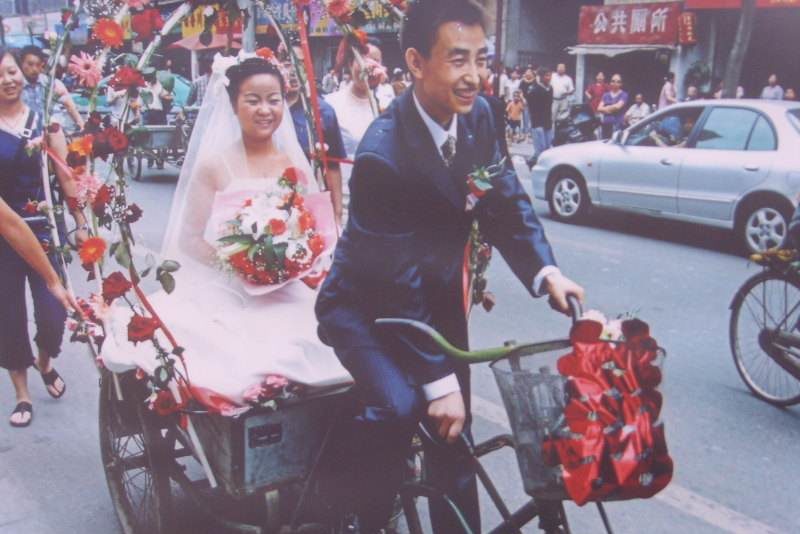The number of single female homebuyers surges in China. What are the potential reasons for this current house buying trend?
Yun Liu had mixed feelings when she moved into her new home. She had at last ended her drifting lifestyle in Guangzhou and became the first female home owner in her family—It was an unusual thing for a woman to buy a house during her parents’ time.
It was common knowledge that many women could not make a living on their own, and had to seek financial support from men. Houses were generally acquired through marriage.
Yun liu
It was common knowledge that many women could not make a living on their own, and had to seek financial support from men. Houses were generally acquired through marriage.
Although her home looked a little shabby due to a lack of renovation money and she knew she would have to bear mortgage fees for decades, she was still very happy with her new home.

Yun Liu, a 40-year-old from Guangshui-a city next to Wuhan, relocated to Guangzhou to escape her parents’ constant urging to get married eight years ago. At that time, she had just finished her three-year master’s degree program and was a newcomer in the workplace. “People thought that I should be married at my age, but I thought otherwise. Thus, my parents asked me to buy a home and they paid the deposit to make that a reality,” said Yun Liu.
In China, woman like Yun Liu who are over 27 years old and unmarried are referred to as “leftover women”. Many of these women choose to make their biggest purchase when they are still single. Around 66% of women believe that it is necessary to buy their properties before getting married, according to a survey from the country’s largest property website, Ke.com.
The website analyzed 67,724 transactions on its platform covering the top cities in the country and found that the proportion of female homebuyers in 2018 reached its highest point at 46.7 per cent in nearly seven years. In contrast, the figure was 30 per cent in 2014.
Urban parents no longer discriminate against daughters in favour of sons, but instead treat them like sons, putting all the family’s time, money and emotional care into their only daughters’ development.
Dr Arianne Gaetano
At present, China’s urban daughters have abundant resources to be independent financially. Dr Arianne Gaetano, Associate Professor of Anthropology of Auburn University, said that urban daughters (esp. singletons) do not need to marry to acquire a house.
“Urban parents no longer discriminate against daughters in favour of sons, but instead treat them like sons, putting all the family’s time, money and emotional care into their only daughters’ development. As a result, they have produced generations of young women who are loved, held to high expectations of success, and who have more than adequate resources to be financially independent, particularly those who have earned postsecondary degrees,” said Dr Arianne Gaetano.

As the eldest child in her family, Yun Liu did get some support from her parents. When she was born, China was implementing the one-child policy, a law that limited parents to have more than one child from 1980 to 2016, to control population growth. However, Yun Liu’s family, located in China’s countryside, was not affected by this policy. There are three children in her family, as well as a younger sister and the youngest brother.
In Yun Liu’s hometown Guangshui, the tradition of “sons are better than daughters” prevails. Good resources generally tend to flow to sons first, and there is no exception in Yun Liu’s family.
“There is some inequality in my family, but compared with others in my hometown, I think it is ok,” said Yun Liu. “After our family’s house was demolished and relocated, the money was given to my brother. Although my sister and I were funded with the down payment for our own house, we still couldn’t compare with our brother.”
Yun Liu has longed for life in big cities since she was a child. Although her parents who have been working in Wuhan didn’t have too many requirements for her study, Yun Liu still stands out from the fierce competition to get into university through her hard working.

Credit: Benjamin Chris on Unsplash
She became a senior employee in a respected Guangzhou financial company, and has pretty well everything that many young people are pursuing in this city: a superior educational background, a decent salary and her own property.
But as a 40-year-old single woman, she faced huge marital pressure from her parents and society.
My mom and dad wouldn’t allow me to date men when I was at university. But they hoped that I would marry as soon as I graduated.
Yun liu
“My mom and dad wouldn’t allow me to date men when I was at university. But they hoped that I would marry as soon as I graduated and now that I have left school, they are constantly arranging blind dates for me”, said Yun Liu.
Within decades, the number of China’s universities doubled and many Chinese women like Yun Liu have received a higher education. According to the statistics of the United Nations, most of the bachelor’s degrees in China are held by women. Nevertheless, these well-educated women are still facing their respective conundrums.

Sandy To, a sociologist and the author of Leftover Women in China, thought that prejudice may account for a lot of highly-educated women having trouble landing their Mr. Right. “Men are intimidated by their achievements and would rather find potential wives who are not quite as accomplished”, said To.
Likewise, Dr. Arianne Gaetano explained that many of these women are still waiting for a man who really values their personality and independence.
“As women postpone marriage to get an education, establish a career, and wait for the perfect husband to come along, their views of marriage also shift, and they truly do become ‘more picky‘, said Gaetano. “They want someone who will support an egalitarian marriage, a man who will share the housework, childcare, and support mutual career advancement”.
Purchasing a home was Yun Liu’s strategy to lessen her parents’ anxiety over her marriage, but in doing so she was forced to manage a mortgage, which took nearly half of her income in the first two years.
“I would refuse outings with my friends and colleagues when I felt it was beyond my budget, like more than 300 to 400 RMB (£34 to £45) for one night”, said Yun Liu. “It wasn’t possible for me to refurbish my flat for two years due to lack of money. The best I could do was find a decorator to paint my walls before I moved in.”
After all, I feel a kind of self-satisfaction and contentment when I own my own home, especially as a woman. Furthermore, I become much more motivated to make money.
Zehang chen
Similar to Yun Liu’s experience, another 32-year-old single woman, Zehang Chen, who bought a flat in Guangzhou last year, had to save all her money to pay her mortgage. Working in a Japanese company, she received minimal financial support from her family since her father had passed away relatively early and she needed to take care of her mom.
After encountering some troubles due to the different style of sharing a flat with others, she decided to buy her own home. “After all, I feel a kind of self-satisfaction and contentment when I own my own home, especially as a woman. Furthermore, I become much more motivated to make money”, said Zehang Chen.

Women’s economic power is growing rapidly in a fast-changing China and currently there are 400 million female consumers aged 20-60 in China. Their annual consumption potential is as high as 10 trillion RMB (around £113 million), which is almost the total volume of retail sales in Germany, France and the UK, according to a report from Accenture. With the “she-economy”, the female consumers drive the economy in several sectors, have experienced an upgrade in their purchases from traditional clothes and cosmetics to exorbitant merchandise such as cars and property.
The increasing economic strength of women will bring them more autonomy when choosing marriage partners according to their own criteria. “They are no longer driven by financial needs, and can look for a partner that fulfills such requirements as compatibility, companionship, and emotional fulfilment,” said Sandy To.
“But this doesn’t mean ‘gender equality’ in the sense that patriarchal attitudes still prevail in society, and that accomplished women still have difficulty finding partners. Cultural values still haven’t kept up with the social reality.”
According to a report by Xichun Feng, he believes that the current marriage laws in China do not truly protect women’s property rights, especially with regard to the distribution of women’s property during divorce settlements.
But, until women gain political power, the unfair policies and laws that reinforce discrimination against them, such as inequality in hiring, promotion, and wages, will not change.
DR Arianne Gaetano
Arianne Gaetano said that those Chinese single women who choose to buy a house before they get married are just being pragmatic.
“But in the long run, I think this scenario forces ideologies to change and career women are now accepted as individuals and not just as ‘daughters, daughters-in-law, wives, and mothers’. But, until women gain political power, the unfair policies and laws that reinforce discrimination against them, such as inequality in hiring, promotion, and wages, will not change”, said Gaetano.
Yun Liu’s parents finally gave up on arranging blind dates for her after they quarreled countless times. Presently, she is not concerned about marriage and is simply concentrating on moving forward with her life.
“I am looking forward to studying abroad and experiencing a different life. If I can pay off all my debts quickly and save enough money, I will apply for a master’s course”, claimed Yun.
